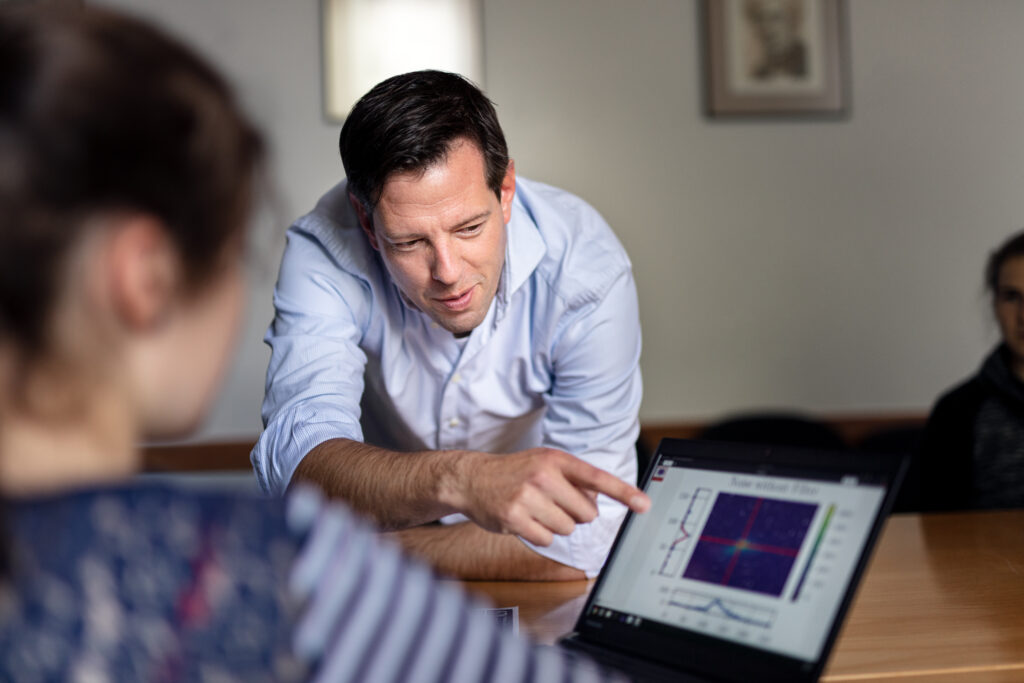ML4Q member and Bonn site representative, Simon Stellmer, has been awarded a Proof of Concept Grant by the European Research Council (ERC) as part of a program designed to help researchers translate their ideas from previous ERC projects into commercial applications. For that, Simon Stellmer will receive €150,000 over a period of around one year.
Developing precise spinning sensors to measure the Earth’s rotation
Together with his team, Simon Stellmer from the Institute of Physics at the University of Bonn is studying how measuring devices that are already unbelievably accurate can keep on being improved and refined. In the “GyroRevolution” ERC project, for which they have now secured funding, they want to develop gyroscopes – spinning sensors that are extremely precise. Specifically, gyroscopes are lasers with a ring-shaped trajectory that can be used to measure rotation. Geodesists use them to record the rotation of the Earth and detect earthquakes, for example. Even very tiny and extremely slow movements of structures or the soil can also be measured.
Stellmer and his team used technologies borrowed from quantum physics to develop their gyroscopes. High-stability lasers, optic resonators, frequency combs: originally developed for optical atomic clocks, the researchers’ tools now form the basis for creating improved gyroscopes. The working group is currently exploring several approaches and running several different designs of gyroscope, the largest of which measures 4 m by 4 m and is installed deep in the bowels of the Institute of Physics.
“We want to build small yet sturdy spinning sensors that can be fitted inside buildings or sunk into holes,” says Simon Stellmer, member of the Matter and Light for Quantum Computing (ML4Q) Cluster of Excellence and the Matter Transdisciplinary Research Area at the University of Bonn. “Earthquakes, climate change, crumbling bridges on the freeway—there are various ways these gyroscopes could be used, all of them highly relevant to society.”
Even back when he was working on his ERC Starting Grant project, which secured its funding in 2017, Simon Stellmer was investigating precision measurements of this kind. In this project, he is addressing a very fundamental question: Why does the universe contain matter in the first place? His aim is to answer questions from the world of particle physics using the precision of quantum experiments rather than the high energy of large particle accelerators.
[Based on the press release of the University of Bonn]
